Atrial and mitral are the two main valves in the human heart. These valves have a special function to control or regulate the blood flow in the heart.
Atrial valve replacement and mitral valve replacement are required because of a defect in the functioning of these valves. When the valves do not open or close properly, it affects the flow of blood through the heart.
The defect may arise because of many reasons. But the two main reasons are as follows:
The decision to conduct valve replacement depends on the clinical status of the patients as per diagnostic reports and clinical symptoms. Sometimes, the patient is a candidate for aortic valve repair or mitral valve repair and does not require replacement of the valve. Therefore, the decision is made after the physical assessment and evaluation of the patient.
The following factors affect AVR cost and MVR cost:
Treatment cost
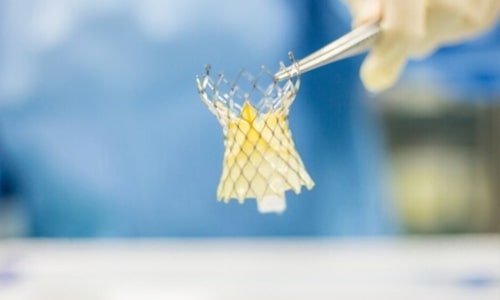
Some of the key inclusions which we provide as additional benefits of the package are:
With us, you are sure to receive all the benefits at competitive prices which is a better choice than paying actual hospital costs. AVR/MVR Valve Replacement Surgery is a heart valve repair procedure, which is performed to correct heart valves that are not functioning properly. Aortic Valve Replacement is an open heart technique, which involves leakage or narrowing of the aortic valve. Mitral Valve Repair is again an open heart procedure used to treat regurgitation (leakage) or stenosis (narrowing) of the mitral valve. Therefore, to explain AVR/MVR in simple terms, it is a heart condition developed when normal flow of blood through the arteries and vessels through your heart is interrupted., For AVR/MVR Valve Replacement Surgery in Turkey, we are providing the best all-inclusive discounted package at Medicana Camlica Hospital with some additional benefits.
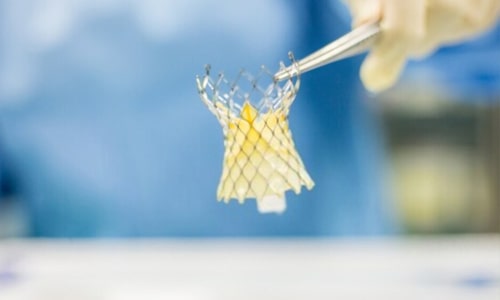
Some of the key inclusions which we provide as additional benefits of the package are:
We offer packages at reasonable pricing that include a variety of additional advantages, making it a better deal than paying for individual perks at the hospital. AVR/MVR Valve Replacement Surgery is a heart valve repair procedure, which is performed to correct heart valves that are not functioning properly. Aortic Valve Replacement is an open heart technique, which involves leakage or narrowing of the aortic valve. Mitral Valve Repair is again an open heart procedure used to treat regurgitation (leakage) or stenosis (narrowing) of the mitral valve. Therefore, to explain AVR/MVR in simple terms, it is a heart condition developed when normal flow of blood through the arteries and vessels through your heart is interrupted., For AVR/MVR Valve Replacement Surgery in India, we are providing the best all-inclusive discounted package at Pushpawati Singhania Research Institute with some additional benefits.

Dr. Rose Private Hospital located in Budapest, Hungary is accredited by JCI. Also listed below are some of the most prominent infrastructural details:

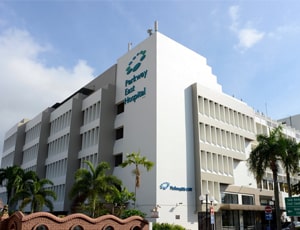
Parkway East Hospital located in Joo Chiat Pl, Singapore is accredited by JCI. Also listed below are some of the most prominent infrastructural details:
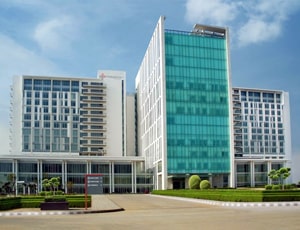
Types of Cardiac Valve Replacement in Medanta - The Medicity and its associated cost
| Treatment Option | Approximate Cost Range (USD) | Approximate Cost Range (INR) |
|---|---|---|
| Cardiac Valve Replacement (Overall) | 7272 - 15772 | 588509 - 1293551 |
| Aortic Valve Replacement | 7630 - 12647 | 606982 - 1005178 |
| Mitral Valve Replacement | 7752 - 13392 | 637027 - 1113934 |
| Pulmonary Valve Replacement | 7428 - 11968 | 604940 - 953699 |
| Ross Procedure | 10760 - 17113 | 863205 - 1379497 |
| Transcatheter Valve | 9164 - 14746 | 732579 - 1207422 |
| Double Valve Replacement | 11844 - 18448 | 981759 - 1526596 |
| Tricuspid Valve Replacement | 9697 - 16068 | 770340 - 1318215 |
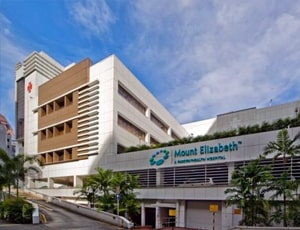
Mount Elizabeth Hospital located in Singapore, Singapore is accredited by JCI. Also listed below are some of the most prominent infrastructural details:
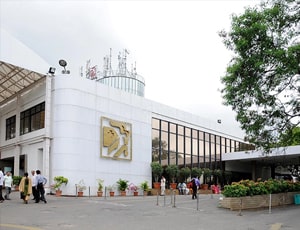
Types of Cardiac Valve Replacement in Apollo Hospitals and its associated cost
| Treatment Option | Approximate Cost Range (USD) | Approximate Cost Range (INR) |
|---|---|---|
| Cardiac Valve Replacement (Overall) | 7405 - 16007 | 587639 - 1290898 |
| Aortic Valve Replacement | 7552 - 12480 | 629259 - 1013359 |
| Mitral Valve Replacement | 7794 - 13277 | 636764 - 1087818 |
| Pulmonary Valve Replacement | 7215 - 11925 | 611307 - 956744 |
| Ross Procedure | 10721 - 16523 | 888521 - 1409914 |
| Transcatheter Valve | 8815 - 14542 | 739428 - 1222184 |
| Double Valve Replacement | 11702 - 18967 | 977758 - 1531444 |
| Tricuspid Valve Replacement | 9661 - 15857 | 767283 - 1300611 |
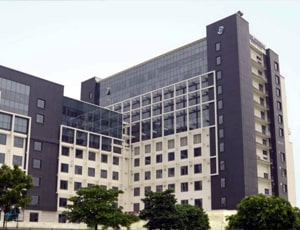
Types of Cardiac Valve Replacement in Venkateshwar Hospital and its associated cost
| Treatment Option | Approximate Cost Range (USD) | Approximate Cost Range (INR) |
|---|---|---|
| Cardiac Valve Replacement (Overall) | 6580 - 14175 | 543394 - 1169555 |
| Aortic Valve Replacement | 6790 - 11191 | 557504 - 911466 |
| Mitral Valve Replacement | 7134 - 12122 | 582179 - 996924 |
| Pulmonary Valve Replacement | 6603 - 10635 | 541204 - 875031 |
| Ross Procedure | 9596 - 15264 | 788983 - 1246663 |
| Transcatheter Valve | 8155 - 13259 | 663950 - 1080288 |
| Double Valve Replacement | 10660 - 16711 | 874988 - 1367148 |
| Tricuspid Valve Replacement | 8618 - 14248 | 707462 - 1163552 |
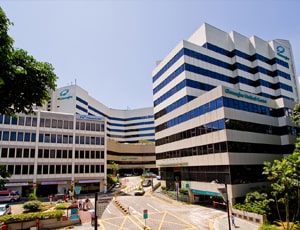
Gleneagles Hospital located in Napier Road, Singapore is accredited by JCI. Also listed below are some of the most prominent infrastructural details:
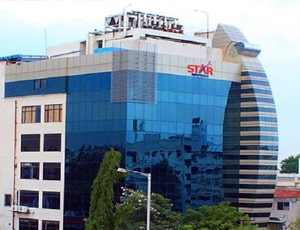
Types of Cardiac Valve Replacement in Star Hospitals and its associated cost
| Treatment Option | Approximate Cost Range (USD) | Approximate Cost Range (INR) |
|---|---|---|
| Cardiac Valve Replacement (Overall) | 5987 - 13065 | 495762 - 1080886 |
| Aortic Valve Replacement | 6230 - 10156 | 518516 - 841159 |
| Mitral Valve Replacement | 6639 - 11182 | 528142 - 920550 |
| Pulmonary Valve Replacement | 6091 - 9889 | 502851 - 814010 |
| Ross Procedure | 8921 - 14168 | 737703 - 1160245 |
| Transcatheter Valve | 7524 - 12151 | 613774 - 1010819 |
| Double Valve Replacement | 9746 - 15621 | 813597 - 1258546 |
| Tricuspid Valve Replacement | 8008 - 12971 | 644012 - 1074067 |
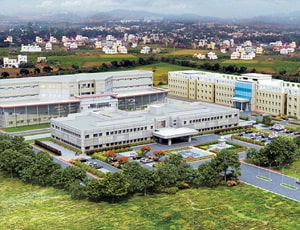
Types of Cardiac Valve Replacement in Global Health City and its associated cost
| Treatment Option | Approximate Cost Range (USD) | Approximate Cost Range (INR) |
|---|---|---|
| Cardiac Valve Replacement (Overall) | 7193 - 15871 | 597518 - 1300368 |
| Aortic Valve Replacement | 7460 - 12621 | 619350 - 998252 |
| Mitral Valve Replacement | 7715 - 13515 | 642363 - 1083686 |
| Pulmonary Valve Replacement | 7305 - 11798 | 589498 - 981325 |
| Ross Procedure | 10635 - 17163 | 892868 - 1392920 |
| Transcatheter Valve | 8993 - 14644 | 753485 - 1225594 |
| Double Valve Replacement | 11901 - 18860 | 964506 - 1519842 |
| Tricuspid Valve Replacement | 9492 - 15964 | 780663 - 1276153 |
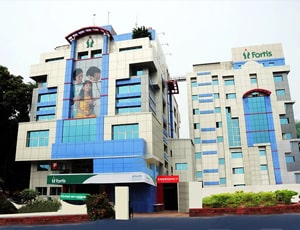
Types of Cardiac Valve Replacement in Fortis Malar Hospital and its associated cost
| Treatment Option | Approximate Cost Range (USD) | Approximate Cost Range (INR) |
|---|---|---|
| Cardiac Valve Replacement (Overall) | 6618 - 14267 | 538590 - 1162474 |
| Aortic Valve Replacement | 6783 - 11137 | 556509 - 912094 |
| Mitral Valve Replacement | 7099 - 12160 | 584673 - 1003673 |
| Pulmonary Valve Replacement | 6615 - 10668 | 540932 - 876723 |
| Ross Procedure | 9672 - 15253 | 792871 - 1246726 |
| Transcatheter Valve | 8091 - 13167 | 663097 - 1077343 |
| Double Valve Replacement | 10655 - 16757 | 875630 - 1366633 |
| Tricuspid Valve Replacement | 8615 - 14189 | 708481 - 1169760 |
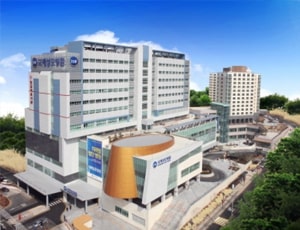
International St. Mary's Hospital located in Seoul, South Korea is accredited by JCI. Also listed below are some of the most prominent infrastructural details:
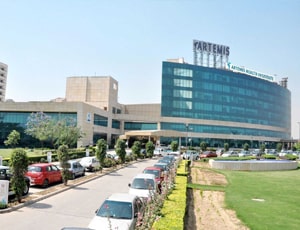
Types of Cardiac Valve Replacement in Artemis Health Institute and its associated cost
| Treatment Option | Approximate Cost Range (USD) | Approximate Cost Range (INR) |
|---|---|---|
| Cardiac Valve Replacement (Overall) | 7285 - 15699 | 608727 - 1306981 |
| Aortic Valve Replacement | 7641 - 12567 | 613677 - 1007649 |
| Mitral Valve Replacement | 8016 - 13215 | 651624 - 1085333 |
| Pulmonary Valve Replacement | 7247 - 11741 | 595672 - 978637 |
| Ross Procedure | 10533 - 17109 | 895289 - 1395130 |
| Transcatheter Valve | 9097 - 14844 | 732820 - 1181578 |
| Double Valve Replacement | 11862 - 18703 | 986799 - 1547379 |
| Tricuspid Valve Replacement | 9721 - 15840 | 786590 - 1294514 |

Types of Cardiac Valve Replacement in Sterling Wockhardt Hospital and its associated cost
| Treatment Option | Approximate Cost Range (USD) | Approximate Cost Range (INR) |
|---|---|---|
| Cardiac Valve Replacement (Overall) | 6621 - 14246 | 541207 - 1169621 |
| Aortic Valve Replacement | 6780 - 11115 | 557661 - 918241 |
| Mitral Valve Replacement | 7075 - 12191 | 583884 - 1001751 |
| Pulmonary Valve Replacement | 6565 - 10665 | 539675 - 876814 |
| Ross Procedure | 9668 - 15183 | 790313 - 1249483 |
| Transcatheter Valve | 8101 - 13249 | 662770 - 1078957 |
| Double Valve Replacement | 10630 - 16739 | 873437 - 1374061 |
| Tricuspid Valve Replacement | 8624 - 14274 | 709784 - 1166292 |
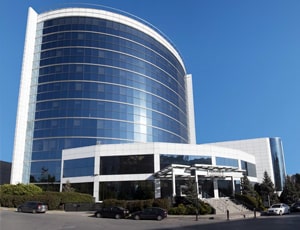
Types of Cardiac Valve Replacement in Medicana International Istanbul and its associated cost
| Treatment Option | Approximate Cost Range (USD) | Approximate Cost Range (TRY) |
|---|---|---|
| Cardiac Valve Replacement (Overall) | 11311 - 19546 | 344627 - 602831 |
| Aortic Valve Replacement | 11342 - 17544 | 336283 - 519044 |
| Mitral Valve Replacement | 11797 - 18373 | 352837 - 567176 |
| Pulmonary Valve Replacement | 10646 - 16438 | 327411 - 482988 |
| Ross Procedure | 14191 - 21181 | 425404 - 634987 |
| Transcatheter Valve | 12451 - 19042 | 380075 - 569859 |
| Double Valve Replacement | 14699 - 20940 | 445987 - 656597 |
| Tricuspid Valve Replacement | 12662 - 19433 | 398176 - 598842 |
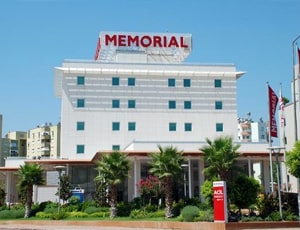
Types of Cardiac Valve Replacement in Memorial Antalya Hospital and its associated cost
| Treatment Option | Approximate Cost Range (USD) | Approximate Cost Range (TRY) |
|---|---|---|
| Cardiac Valve Replacement (Overall) | 11290 - 19297 | 340780 - 596988 |
| Aortic Valve Replacement | 11221 - 17395 | 338313 - 531883 |
| Mitral Valve Replacement | 11570 - 18168 | 351413 - 562497 |
| Pulmonary Valve Replacement | 10835 - 16249 | 322382 - 499289 |
| Ross Procedure | 13948 - 20404 | 415702 - 629530 |
| Transcatheter Valve | 12502 - 18782 | 364916 - 586561 |
| Double Valve Replacement | 14486 - 21713 | 432691 - 636758 |
| Tricuspid Valve Replacement | 13038 - 20081 | 397380 - 596167 |
Cardiac Valve replacement is performed to replace or repair a valve in the heart that stops working properly due to Valvular Heart Disease, also called Heart Valve Disease.
Heart valve replacement surgery involves a significant procedure that is performed through an open-heart approach, accessing the chest via the breastbone. This major operation, lasting two hours or more, requires a substantial recovery period, often extending over several weeks. While advancements have introduced less invasive alternatives for specific cases of valvular heart disease, these procedures are currently limited to select hospitals.
The main types of cardiac valve impairment include:
Valve replacement includes four procedures:
The aortic valve and the mitral valve replacements are the most common. Pulmonary and tricuspid valve replacements are uncommon in adults.
Surgical procedure- In Aortic valve replacement the incision is made by cutting through the sternum. After the pericardium is opened, the patient is put on a cardiopulmonary bypass machine, which is also known as the heart-lung machine. This machine performs the task of breathing for the patient and pumping their blood around while the surgeon replaces the heart valve.
The surgeon makes a cut in the aorta when the patient is on bypass and applies a crossclamp. The patient's diseased aortic valve is removed and is replaced by a mechanical or tissue valve. After the placement of the artificial valve and closing the aorta, the heart-lung machine is taken off from the patient. A transesophageal echocardiogram helps to confirm whether the new valve is functioning properly.
Surgical procedure- General anesthesia is given to the patient before mitral valve replacement. An incision is made horizontally under the left breast, or vertically through the sternum. After exposing the heart, cannula is placed and blood is directed to the heart-lung machine for cardiopulmonary bypass. The mitral valve is exposed by creating an incision in the left atrium. Then the valve is replaced. The left atrium is closed and the cardiopulmonary bypass is removed. The patient is taken to an intensive care unit after the surgery.
Post cardiac valve replacement, patients typically undergo a recovery period that involves monitoring for signs of infection, managing pain, and gradually resume normal activities. Short-term restrictions on strenuous activities may be advised, and a cardiac rehabilitation program could be recommended to enhance overall recovery.
Regular follow-up appointments with healthcare professionals help track progress and address any concerns, ensuring a smooth transition back to daily life while promoting optimal heart health.
Ask your healthcare adviser for the best multiple options and choose the one that meets your expectations
Cardiac Valve Replacement cost in Hungary varies from one hospital to the other. The cost quoted by some of the best hospitals for Cardiac Valve Replacement in Hungary generally covers the pre-surgery investigations of the patient. The Cardiac Valve Replacement package in Hungary includes the fees of the surgeon, hospitalization and anesthesia as well. Stay outside the package duration, port-operative complications and diagnosis of a new condition may further increase the Cardiac Valve Replacement cost in Hungary.
There are many hospitals across the country that offer Cardiac Valve Replacement to international patients. The following are some of the most renowned hospitals for Cardiac Valve Replacement in Hungary:
Upon discharge from the hospital after Cardiac Valve Replacement in Hungary, the patients are advised to stay for about 21 days for recovery. This period is important to conduct all the follow-up tests to ensure that the surgery was successful and the patient can go back to the home country.
One of the topmost destinations for Cardiac Valve Replacement is Hungary. It has a variety of accredited hospital, affordable cost of treatment and some of the best medical fraternity. Some of the other destinations that are popular for Cardiac Valve Replacement include the following:
Apart from the Cardiac Valve Replacement cost, the patient may have to pay for additional daily expenses such as for guest house after discharge and meals. The per day extra expenses in Hungary per person is about USD$ 65
Cardiac Valve Replacement in Hungary is offered in almost all metropolitan cities, including the following:
After Cardiac Valve Replacement, the patient is supposed to stay for about 5 days in the hospital for recovery and monitoring. The patient is subjected to several biochemistry and radiological scans to see that everything is okay and the recovery is on track. After making sure that patient is clinically stable, discharge is planned.
There are about 1 Cardiac Valve Replacement hospitals in Hungary that are best known for their services. Apart from good services, the hospitals are known to follow all standard and legal guidelines as dictated by the local medical affairs body or organization.